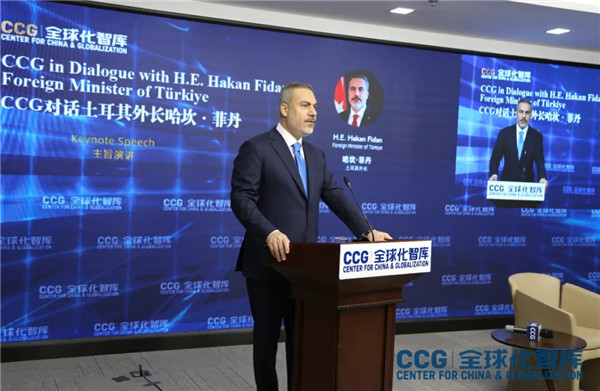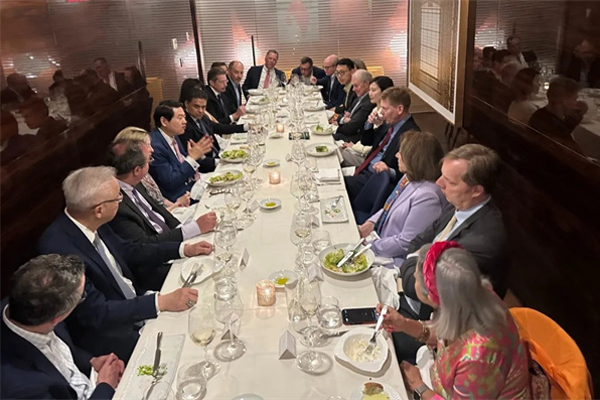CCG President Wang Huiyao participates in the Rhodes Forum

From 11th -12th October, the Rhodes Forum (2019) was held in Rhodes, Greece. Organized by the Dialogue of Civilizations Research Institute (DOC), the forum was themed “Global (dis)order: Towards dialogue-based worldviews”. It brought together 300 participants from over 50 countries to share ideas on sustainable economic development, the architecture of international governance under rapid shifts in the global economy, and the renovation of civility and ethical standards in the digital age.
At the forum, President of the Center for China and Globalization (CCG) Wang Huiyao delivered a speech and engaged in conversations in the opening session on October 11th . He also participated in a panel discussion “Examining Geopolitical World Views: Towards the Battle of Giants?” on October 12th.
30 Year After the Fall of the Berlin Wall: In Search of a Roadmap and a Compass
30 years after the fall of the Berlin Wall, it is evident that Francis Fukuyama’s much quoted pronouncement of the “end of history” and the universalization of Western liberal democracy has not materialized.
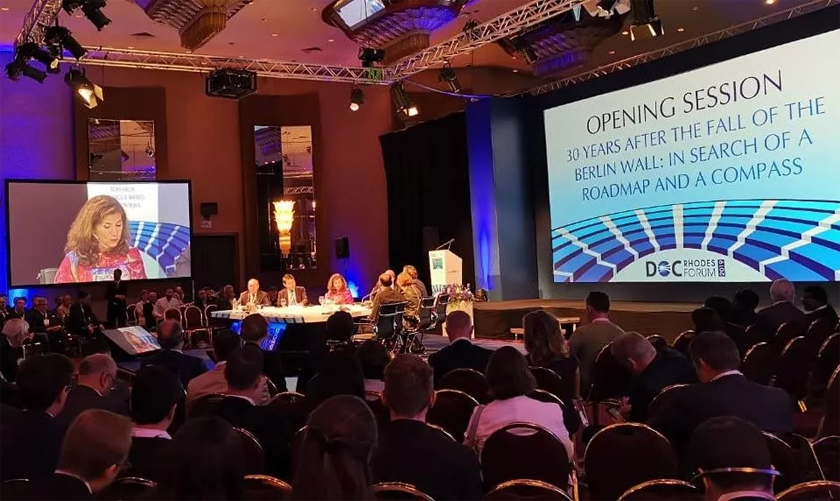
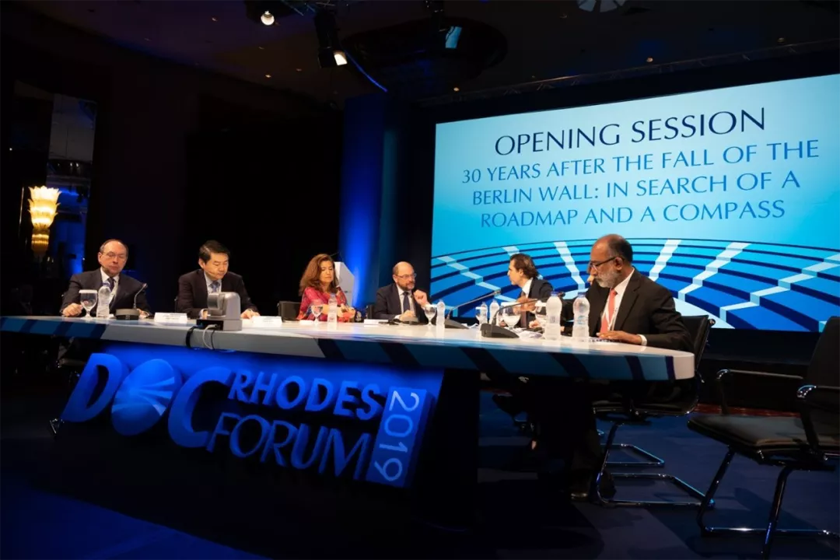
In the opening session, themed “30 Years After the Fall of the Berlin Wall: In Search of a Roadmap and A Compass”, Wang shared ideas on China’s engagements in globalization and its potential to tackle the challenges and uncertainties facing global governance.
China has played a positive role in the global governance
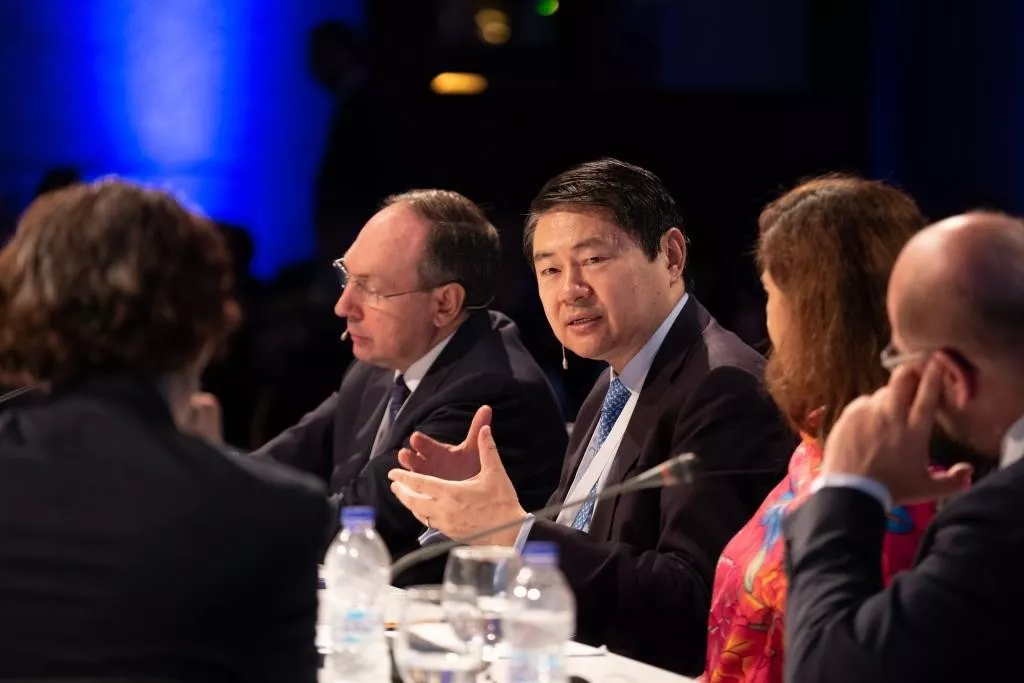
Wang said that the rise of populism and nationalism as well as Sino-US trade frictions have brought uncertainty and challenges for the global governance system and multilateralism established over the past decades. Finding the right direction for development has become a top priority for all mankind.
Wang pointed out that China has just celebrated the 70th anniversary of the founding of the People’s Republic of China. Rapid development over the past 70 years has also shown that China has chosen an effective path for development.
He added that according to the World Bank, more than 800 million Chinese people have been lifted out of poverty, accounting for over 70% of global poverty reduction. The average life expectancy in China has also doubled, from 35 years to roughly 75. In addition, China is one of the largest economies in the world, contributing nearly 30% of global growth.
Wang said that China has not only injected new impetus into the global economy, but also actively upheld and improved the current international system. China is also actively involved in enhancing global governance, promoting globalization and maintaining multilateralism. For example, the China-led Asian Infrastructure Investment Bank (AIIB) now has 100 approved members, which demonstrates China’s important contribution to expanding multilateral cooperation.
Three recommendations to address uncertainty and challenges in the new era
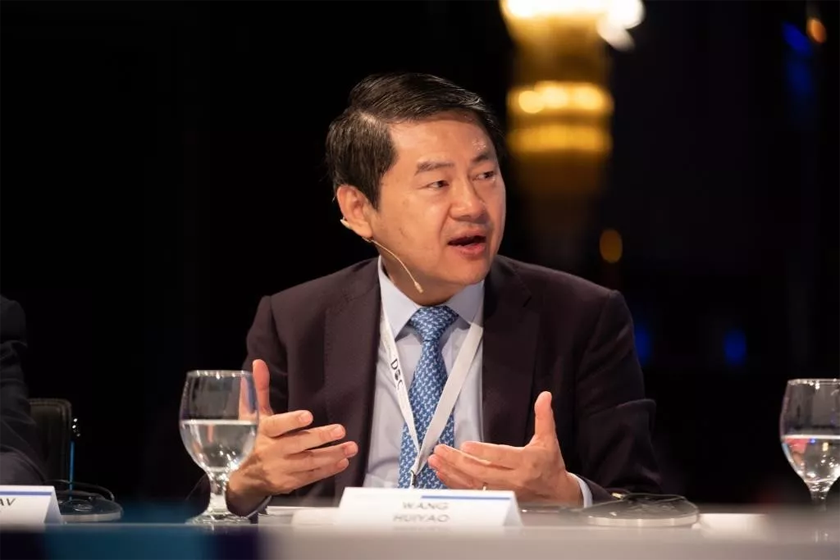
Wang believed that people should work together to address the uncertainty and challenges brought about by the new era. Specifically, he made three recommendations.
First, enhance trade ties. The world’s sectors are becoming more interconnected because of close trade ties. Therefore, in order to build lasting security, peace and prosperity, it is increasingly important to enhance trade ties between East and West, including Asia, Europe and the U.S. and to avoid trade wars.
Second, promote sustainable infrastructure. Infrastructure has always played a crucial role in promoting economic growth. China’s Belt and Road Initiative aims to strengthen China’s connectivity with the world, including efforts to strengthen infrastructure. It has provided support for many developing countries to better promote sustainable infrastructure and to achieve faster overall development.
Third, advance dialogue and communication to forge consensus. Wang said that the Rhodes Forum is a good platform to communicate and exchange ideas. Continuous dialogue and joint efforts will help us to find solutions to meet the current challenges.
The opening session was moderated by Ali Aslan, journalist and moderator. Participants in this session also included Gabriela Ramos, OECD chief of staff and Sherpa to the G20; Martin Schulz, president of the European Parliament from 2012 to 2017; Vyacheslav Nikonov, member of the State Duma of the Russian Federation, and dean of the Moscow State University School of Public Administration; Shada Islam, director for Europe & Geopolitics at Friends of Europe; and Alphons Joseph Kannantham, member of the Indian Parliament and Former Union Minister.
Examining Geopolitical World Views: Towards the Battle of Giants?
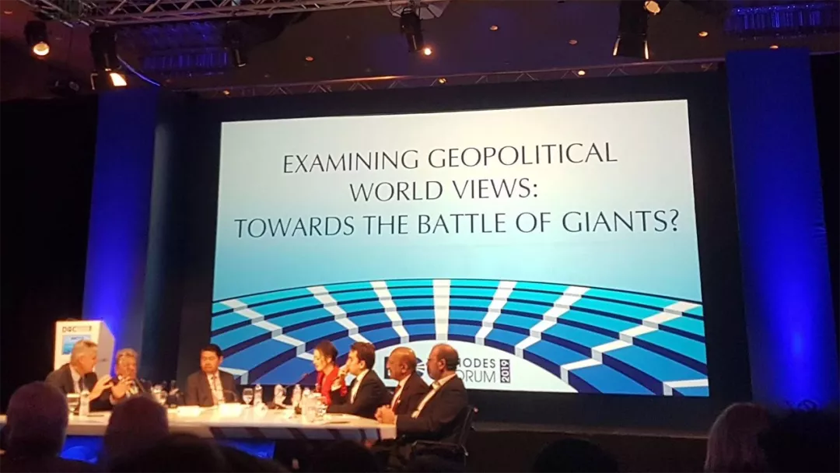
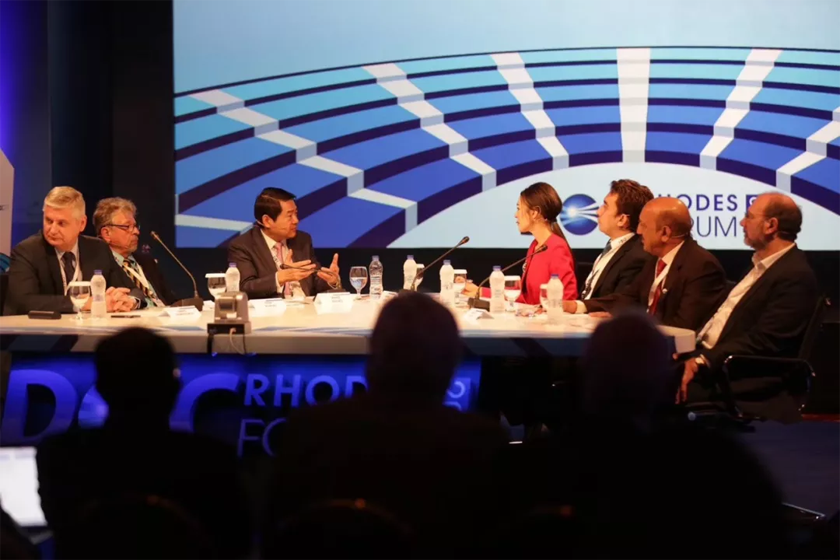
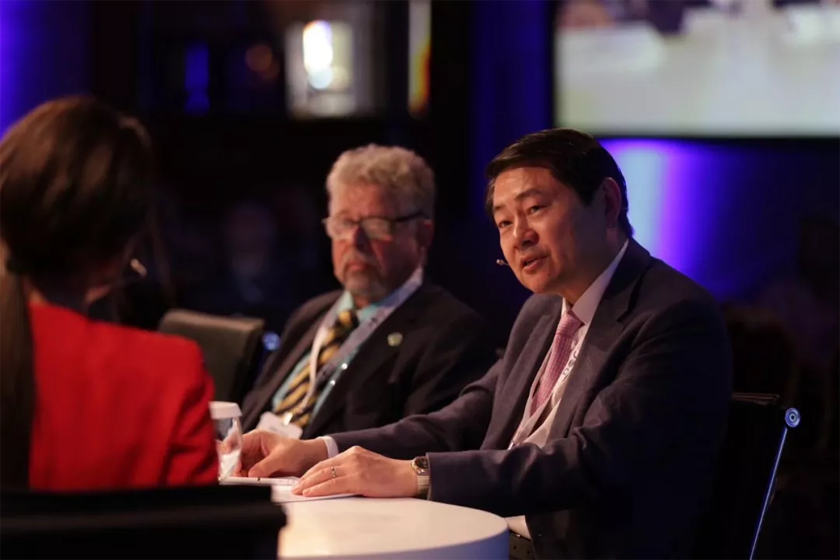
With disruption, uncertainty, and risks in the new era, the geopolitical landscape is undergoing profound changes. There have been major structural power shifts, reshaping the international order. Emerging economies are rising to the status of global powers, putting the US-led international system under strain.
On October 12th, Wang participated in another panel discussion during the forum and had conversations on topics such as geopolitical battlegrounds of the future and prospects for cooperation between global powers. He engaged with figures including Alfred Gusenbauer, former chancellor of Austria; Bruno Maçaes, former Portuguese minister of European Affairs and author of the bestseller “The Dawn of Eurasia: On the Trail of the New World Order”; Sergey Markedonov, leading researcher of the Euro-Atlantic Security Center at the MGIMO Institute for International Studies; Dhruv C. Katoch, director, India Foundation; and Peter Schulze, professor at the University of Göttingen and co-founder of DOC Research Institute. This event was moderated by Martina Fuchs, business journalist, event moderator and expert on Asia, China and the Middle East.
About the Rhodes Forum:
Since 2003 the Rhodes Forum has brought together leaders from the business, academic, diplomatic and political communities, including current and former heads of state and government, to discuss crucial issues facing the world today. Throughout its history, its hallmark has been the pioneering spirit, inclusiveness, and moral resilience of its participants in their work to tackle the problems we face. Discussions on the most pressing issues of the international agenda. Networking and brainstorm platform for finding the solutions. Senior policy makers, respected academics and researchers, top media.
This year, Jean-Christophe Bas, CEO and Executive Board Chairman of the Dialogue of Civilizations Research Institute; John Chrysoulakis, Hellenic Republic Ministry of Foreign Affairs and Andonis Cambourakis, Mayor of Rhodes gave welcoming speeches. Vladimir Yakunin, Chairman of the Supervisory Board of the DOC Research Institute, delivered an opening speech at the forum.
LocationRhodes

